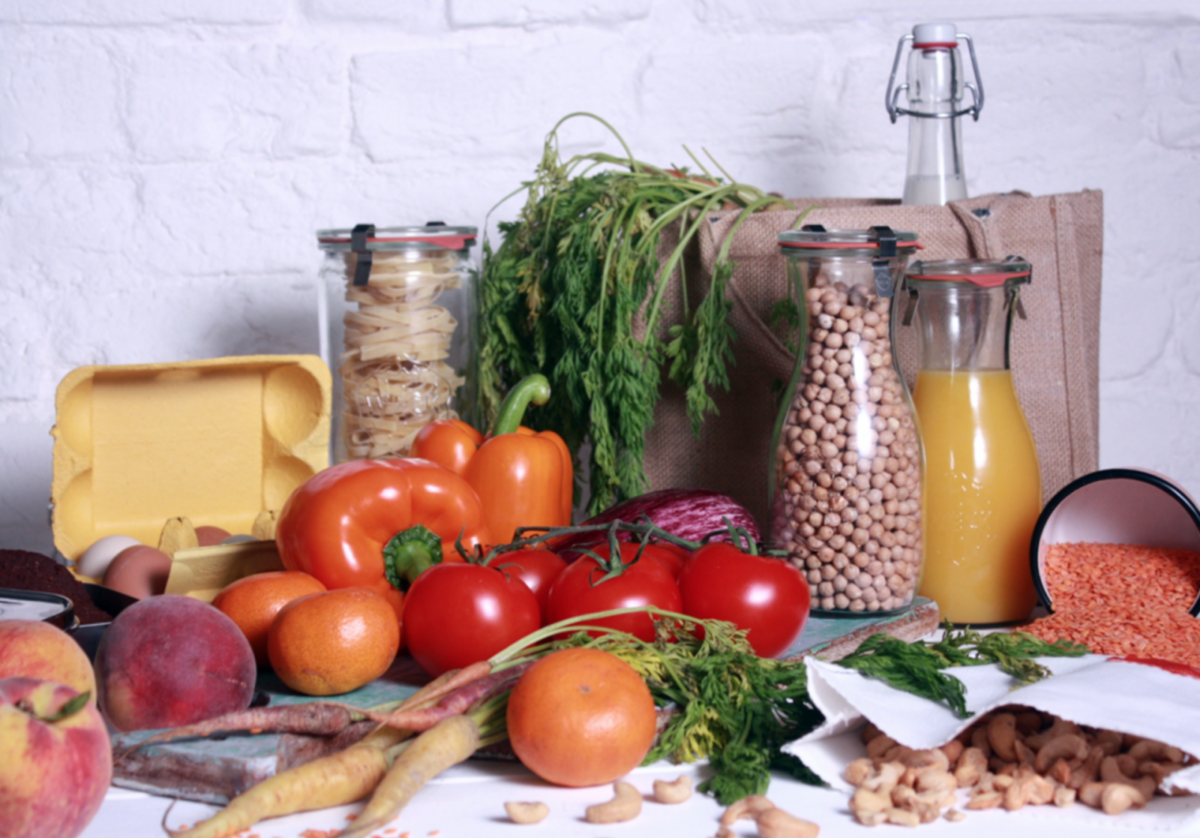Ingrid Caldironi On Founding London’s First Zero-Waste Supermarket
By Something CuratedWhen Ingrid Caldironi decided to go waste free, specifically to stop buying products wrapped in superfluous plastic, she realised she had her work cut out. Sure, she’d turned her guilt over how much plastic she was binning into a firm resolution, but it was hard to ignore how few supermarkets or retailers catered to this new lifestyle choice. It didn’t seem like a tall order, all she wanted was to buy pasta, grains, and fresh vegetables without packaging which would only go into the bin once she was home. She spotted a gap in the market – a shop that operates more like a farmers market, where you can take a tote bag, or a faithful tupperware container and fill up on food.
Bulk Market soon followed: a completely plastic-free grocers which has filled a temporary pop up space in Kingsland Road since the summer. You can buy olive oil, herbs and spices, flour grains and household cleaning products from large vats, in quantities you actually need. The pop up closes on 25th October, with a permanent residence in Clapton following soon. It’ll have on-site beehives to produce honey and a commercial-grade composting machine, as well as interiors made from reused materials from places as diverse as The Royal Opera House. Something Curated caught up with Ingrid to learn more.

Something Curated: You started the shop after realising how challenging going waste free is. What made it so hard?
Ingrid Caldironi: Well, shopping in a world that isn’t “zero waste” is something that makes my life harder! Brands don’t really take into account their packaging, or the impact it has on the environment. There are companies creating amazing products, but in the worst possible packaging – plastic.
SC: Do you have to be quite strong-willed to go waste free?
IC: Definitely. In order to buy fruit and vegetables without plastic I needed to organise my life around farmers markets and commute to so many different places to get my shopping done. The average person wouldn’t bother for the sake of the planet, and so many times I thought, “Do I really need to make the effort?” But when I started thinking about images I’ve seen of landfill, or marine wildlife choking on plastic, it’s difficult to ignore the fact we’re contributing to all the issues.
SC: Why did you choose Dalston as the home for your first Bulk pop-up?
IC: I wanted to be in Hackney, as my permanent space will be in the borough, so it made sense to have the pop-up where my customers will be.
SC: What are your tips for others who want to reduce their waste?
IC: Start by eliminating the 5 big offenders: disposable coffee cups, disposable water bottles, plastic straws, disposable plastic cutlery and plastic carrier bags. Reusable alternatives are better for the planet, and they look good. You can arm yourself with a zero waste basic survival kit, with bamboo cutlery or a spork, a reusable coffee cup which can double as a drinking cup and an organic cotton bag. Start simple, like refilling a reusable bottle with tap water instead of buying new disposable bottles.
SC: Is the amount of plastic we waste something you’ve always been aware of?
IC: I grew up in Brazil and I actually never paid too much attention to waste. I believed that things would get recycled, that companies and governments were taking care of that. But the more I read, the more I realised they aren’t doing enough. They need people to keep pressuring for policy change.
SC: Which social enterprises, coops and community farms are supplying products at Bulk Market?
IC: I’m working with local Haggerston-based Luminary Bakery (which provides training and jobs for vulnerable women), another social enterprise bakery called The Dusty Knuckle, Hackney-based farm collective Growing Communities, and wholesalers like Infinity Foods Coop and Suma Coop.
SC: What’s the general reaction been from customers since opening?
IC: People love the shop; they keep saying “Thank you so much for doing this.” They’ve been waiting a long time for a zero waste shop in London.
SC: There’s something very familiar about shopping in traditional supermarkets. Is shopping at Bulk Market very different?
IC: Yes, people want to know about the provenance of the products, because they are brandless; there’s no labels on anything. Also, because everything is sold by weight, some people feel unsure about filling up when the final bills depend on how much product you’ve dispensed into your container.

SC: Do you think there’s a risk of waste-free markets like Bulk becoming elite rather than remaining democratic?
IC: Yes, zero waste is still very niche, and prices for proper organic food aren’t cheap compared to stuff in Asda or Tesco. I keep my margins as low as possible for this reason, to make this lifestyle accessible to everyone. But you definitely spend less because you only buy what you actually need. So going zero waste can save you money, especially if you can find new uses to things you would otherwise throw away and buy new.
SC: Who else is leading the way in London to promote the waste-free ethos?
IC: Catherine Conway. 10 years ago she set up Unpackaged, which was a shop in Islington. They now run a concession in Muswell Hill Planet Organic, and consult retail businesses on how to go waste free. She’s helped me so much to set up Bulk Market.
Interview by Stevie Mackenzie-Smith | Images courtesy of Bulk Market